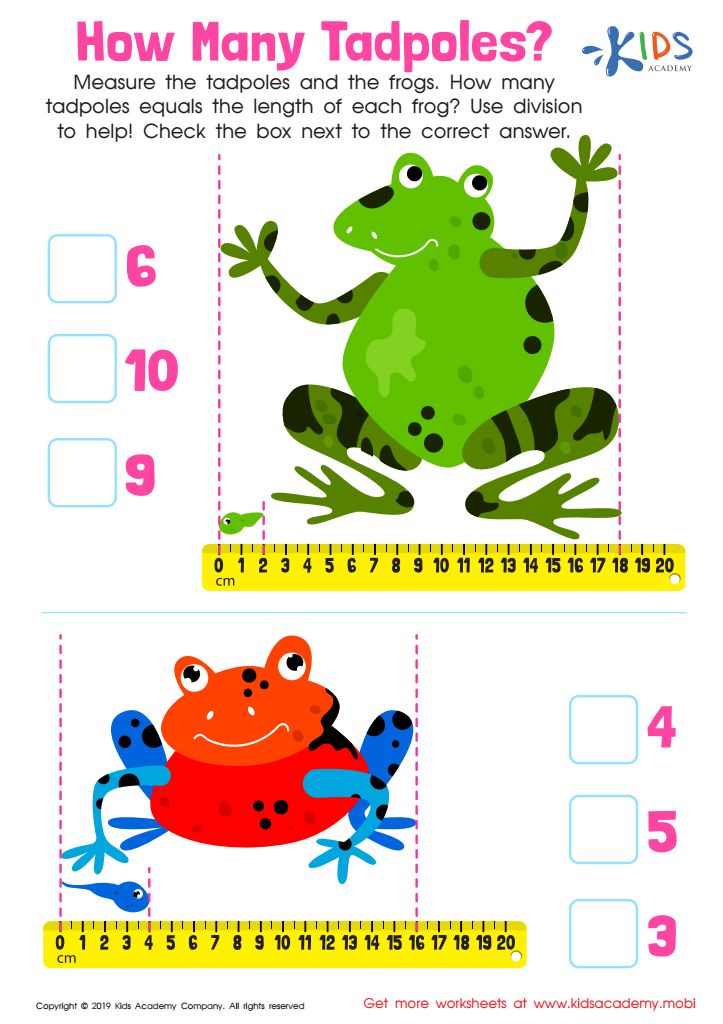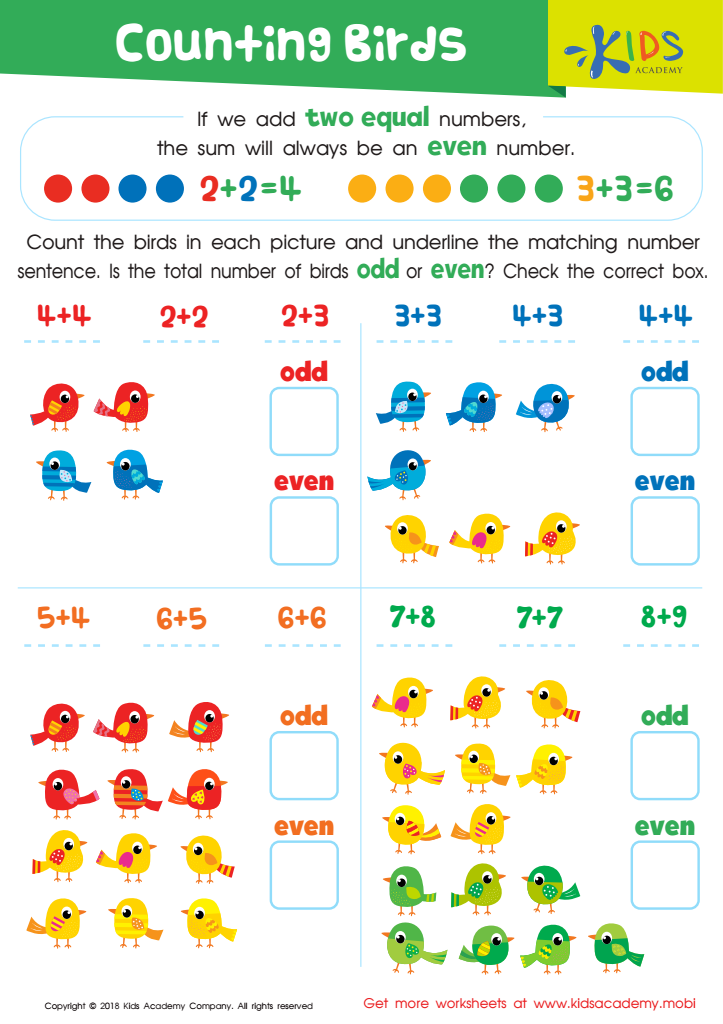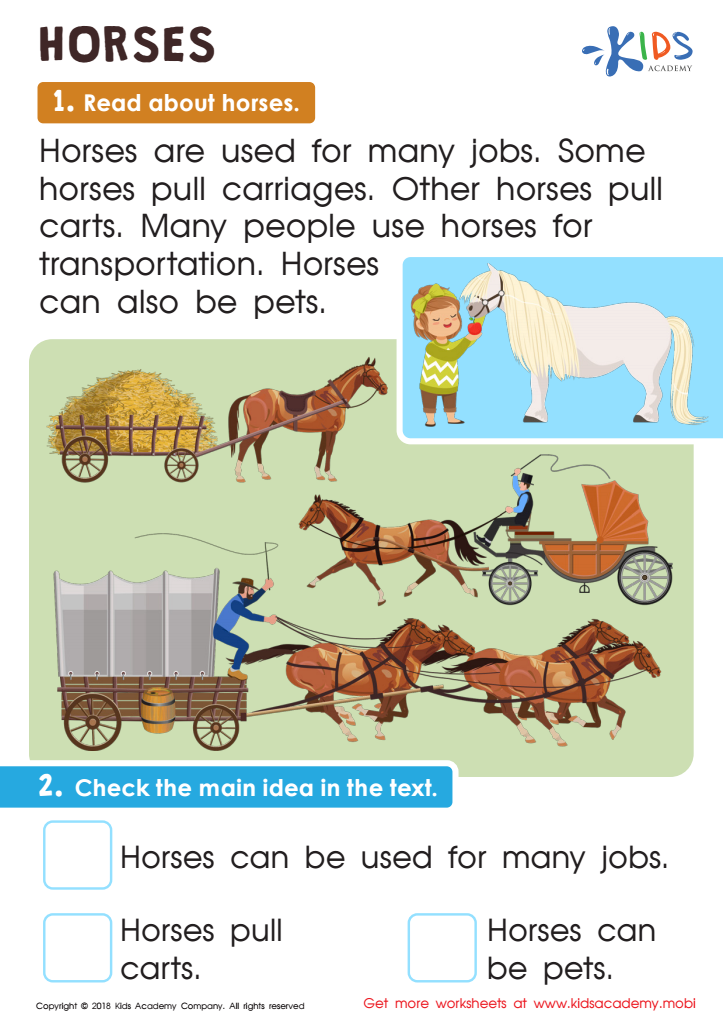Counting skills Science Worksheets for Ages 8-9
3 filtered results
-
From - To
Enhance your child's counting skills with our engaging science worksheets designed for ages 8-9. These interactive worksheets combine fun activities with essential counting concepts, helping kids explore numbers in exciting ways. From hands-on experiments to puzzles and visual aids, each activity fosters critical thinking and reinforces math fundamentals while integrating scientific learning. Perfect for both classroom and home use, our worksheets are designed to engage young learners and make counting an enjoyable experience. Let your child discover the world of numbers in context and build a strong foundation for future academic success in math and science. Download and start counting today!


How Many Tadpoles Worksheet


Counting Birds Worksheet


Horses Worksheet
Counting skills form the foundation of mathematical understanding and are crucial for children aged 8-9 as they transition into more complex mathematical concepts. At this age, students are not just learning to count but are also developing problem-solving abilities and critical thinking. Mastery of counting enhances their ability to understand various scientific principles, such as measurement and data collection, which are integral components of science education.
For parents and teachers, recognizing the importance of counting in science helps reinforce a child's ability to explore concepts like time, temperature, volume, and quantities. This foundational skill allows children to engage confidently in experiments, analyze results, and interpret data. As they learn to count accurately and apply these skills in scientific contexts, they also cultivate a greater interest in science.
Moreover, fostering counting skills encourages analytical reasoning and logical thinking, essential attributes for tackling both science and math challenges. Parents and teachers should see counting as a bridge to interdisciplinary learning, where counting not only supports mathematical growth but also enhances scientific literacy and inquiry based on observation and experimentation. In essence, promoting counting skills is integral to nurturing well-rounded and confident learners.
 Assign to My Students
Assign to My Students














